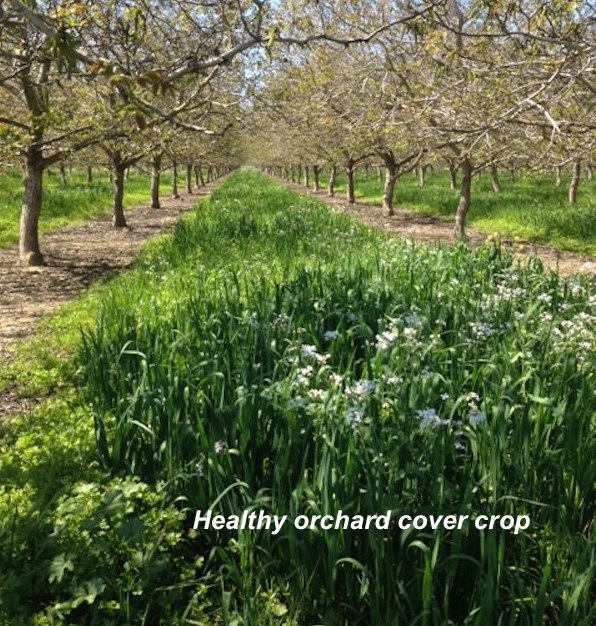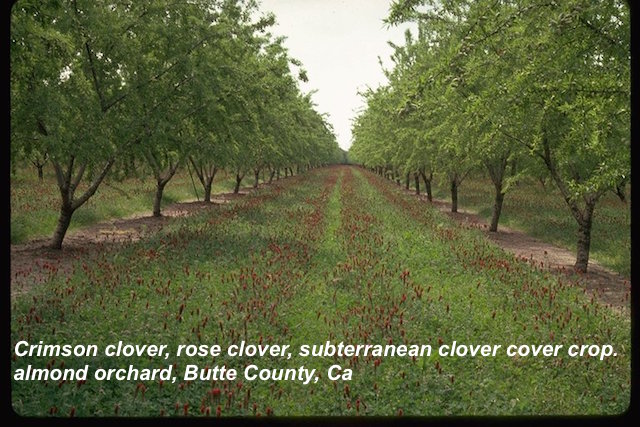SOIL HEALTH IN ESTABLISHED ORCHARDS
The Need For Cover Crops
Poor soil and personal health issues are quite similar in that they are caused largely by faulty fertilizer regimens, poor human diet and personal habits– mainly self inflicted wounds, mostly preventable. With soil it is choices in how we fertilize (diet), and failure to keep soil covered at all times.
It is a crop canopy in spring and summer and cover crop coverage in the winter. Without a cover crop it is virtually impossible to successfully address soil health. After a season of destroying soil biology with synthetic fertilizers and chemical sprays, adding compost is the first step in the rebuilding process followed by seeding the cover crop consisting of mustards, oats, peas, vetch, radishes and others. It is seeded with a common grain drill and allowed to grow until terminated early April by chopping and allowed to decompose in place thus invigorating earthworms and a plethora of soil biology. This chopped material not only provides ground coverage that keeps soil temperatures moderated but also it is loaded with nutrients brought up from the soil profile and deposited at the soil surface in organic form which means always soluble (useable). This massive cover crop root system and the resulting root exudates (which are slightly acidic in nature) help release nutrients that are normally un-available. Such practice allows for reduction in all synthetic fertilizer applications. The reduced use of Nitrogen reduces the disease and pest pressures. It is the excess Nitrogen that causes the chain reaction requiring endless applications of synthetics.
This isn’t just a pipe dream about “what coulda” and “what shoulda,” it is actually being successfully done on many thousands of acres in Northern California. Growers have greatly reduced their synthetic inputs without sacrificing yield.
I invite anyone wanting to discuss this to call me
530-521-1616
Ask for Gary Foster



I had a soil sample made by Logan Labs. This was sent to them by Jeff Armstrong of Nutrilawn. Can you mix ingredients for custom mix? If so I will looking for a truck and trailer load. Bob Nichols (530-343-6766)